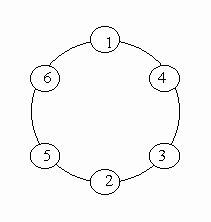- vite+vue+ts+element-plus从零开发管理后台框架(18)-主颜色优化
mirahs
vue.js
问题编辑src/views/Home.vue,添加一个主颜色的按钮。Primary首页{{item}}正常鼠标滑过发现鼠标滑过后颜色出问题了,这是因为按钮样式使用了主颜色相关的变量,而主颜色相关的变量不止el-color-primary这个css变量。按钮样式主颜色变量所以我们要把这些主颜色相关的变量都动态设置解决编辑src/store/color.ts,添加如下辅助方法。import{defin
- vite+vue+ts+element-plus从零开发管理后台框架(17)-主颜色动态设置
mirahs
vue.js
之前的主颜色是静态设置的,这里通过颜色选择器选择颜色动态设置。删除静态设置主颜色编辑src/style.css,删除如下静态主颜色样式。:root{--el-color-primary:red;}:root.dark{--el-color-primary:red;}颜色Store新建src/store/color.ts,内容如下。主要是有一个primary主颜色的属性并且默认是element-pl
- 第十六届蓝桥杯模拟赛(第三期Python)
凯强同学
蓝桥杯python蓝桥杯算法
这跟真题的难度差十万八千里了,只能用来加强一下自信,除了最后一题,其他都比较简单1.最大质数【问题描述】如果一个数p是个质数,同时又是整数a的约数,则p称为a的一个质因数。请问,2024的最大的质因数是多少?【答案提交】这是一道结果填空的题,你只需要算出结果后提交即可。本题的结果为一个整数,在提交答案时只填写这个整数,填写多余的内容将无法得分。【代码】defis_prime(n):foriinra
- scss声明全局变量
semicolon_helloword
scss前端css
在SCSS中声明全局变量是为了让它们可以在项目中的任何地方被访问和使用。通常的做法是在单独的文件中定义这些全局变量,然后通过@import规则将其导入到需要使用这些变量的地方。以下是一个简单的步骤:1.创建一个全局变量文件:例如,创建一个名为_variables.scss的文件,并在这个文件中定义你的全局变量。//_variables.scss$primary-color:#1a1b20;$sec
- 打印出1到100中的所有素数
魏时烟
js前端
素数的定义:一个大于1的自然数,除了1和它本身外,不能被其他自然数整除。应该也叫做质数吧。嗯,初中的知识已经忘得差不多了~贴下我实现的代码吧~素数js部分varspanObj=document.getElementById('spanId');functionprime(min,max){for(leti=min;i
- mysql练习
夏炎正好眠
MySQLmysql数据库
创建数据库db_ck,再创建表t_hero,将四大名著中的主要人物都插入这个表中,将实现过程中sql提交上上来1、创建数据库db_ckmysql>createdatabasedb_ck;2、创建表t_heromysql>usedb_ckDatabasechangedmysql>createtablet_hero(->idintprimarykeyauto_increment,->namevarch
- MySQL Heartbeat+drbd高可用
脚灬印
MySQLmysql
MySQLHeartbeat+drbd高可用环境--具体的配置信息如下所示:角色ip地址主机名字server-idprimary心跳及传输IP:192.168.0.51data-11管理及对外IP:10.0.0.51VIP:10.0.0.151standby心跳及传输IP:192.168.0.52data-21管理及对外IP:10.0.0.51VIP:10.0.0.152Heartbeat安装配置
- 代码随想录算法营Day62 | 寻宝(Prim算法,kruskal算法)
寂枫zero
算法python
寻宝(Prim算法,kruskal算法)在世界的某个区域,有一些分散的神秘岛屿,每个岛屿上都有一种珍稀的资源或者宝藏。国王打算在这些岛屿上建公路,方便运输。不同岛屿之间,路途距离不同,国王希望你可以规划建公路的方案,如何可以以最短的总公路距离将所有岛屿联通起来(注意:这是一个无向图)。给定一张地图,其中包括了所有的岛屿,以及它们之间的距离。以最小化公路建设长度,确保可以链接到所有岛屿。最小生成树P
- MySql索引使用
沐千熏
mysql数据库
索引类型#主键索引:PRIMARY这设立主键后数据库自动建立索引,InnoDB为聚簇索引,主键索引列不能为空(NUll);#唯一索引:UNIQUE索引列的值必须唯一。可以为空值,但是必须只有一个;#普通索引(组合索引):NORMAL也称为非唯一索引,允许重复值和NULL值。一个索引可以包含多个列,多个列共同组成一个复杂的索引;#全文索引:FULLTEXTFullText(MySQL5.7之前,只有
- 如何使用element-ui进行主题的切换呢
小段hy
ui
我们在使用element-ui框架的时,有很多时候主题的配色都是我们不喜欢的,那这个时候element-ui的组件库就帮助我们推出了一套主题定制,用来帮助我们切换主题,方法也很简单在项目中改变sass变量首先在项目中src文件创建一个style文件在文件中进行以下配置:/*改变主题色变量*/$--color-primary:#2ca471;/*改变icon字体路径变量,必需*/$--font-pa
- 向 state 字典中的 “messages“ 键添加一条新的用户消息,提示模型返回实际的输出。
背太阳的牧羊人
langgraphlanggraphtoolsAgent
完整代码:fromdatetimeimportdatetimefromlangchain_core.runnablesimportRunnable,RunnableConfigfromlangchain_core.promptsimportChatPromptTemplateprimary_assistant_prompt=ChatPromptTemplate.from_messages([("s
- 欧拉筛(线性筛):找出所有小于等于给定整数n的质数的算法
日月知行
java算法数论基础
大体思路:与埃氏筛不同,埃氏筛(Java):找出所有小于等于给定整数n的质数的算法-CSDN博客欧拉筛不是把素数的所有倍数标记为非素数,而是每扫过一个数(这个数用外循环的i来表示,遍历isPrime数组)(无论这个数是素数还是非素数)将该数与前面标记为素数的数相乘的数筛掉(内循环进行更新真正的质数primes质数列表)。确保每个合数仅被其最小质因数标记一次,这样才能解决重复标记问题,时间复杂度降为
- JavaSE第五天——基础语法
2301_76231794
JavaSEjava开发语言
一、多变量类型和作用域1、变量变量是用来存储数据的容器。每个变量都有一个特定的类型,该类型决定了变量可以存储什么类型的数据变量的使用必须遵循“先声明,后使用”的原则。变量的声明包括指定变量的名称和类型,而变量的初始化则是为变量分配内存空间并设置初始值变量类型可以分为两大类:基本类型(PrimitiveTypes)和引用类型(ReferenceTypes)2、变量的作用域类变量(静态变量):作用域为
- C#截屏操作
Luskyle
c#
//////截全屏并保存成图片///publicvoidgetScreen(){//ImagemyImage=newBitmap(Screen.PrimaryScreen.Bounds.Width,Screen.PrimaryScreen.Bounds.Height);//截取整个屏幕ImagemyImage=newBitmap(Screen.PrimaryScreen.WorkingArea.R
- Open WebUI 集成企业微信认证开发文档
大刘讲IT
企业微信web人工智能
OpenWebUI集成企业微信认证开发文档1.系统架构1.1技术栈前端:Vue3+TypeScript后端:FastAPI数据库:PostgreSQL缓存:Redis认证:企业微信OAuth2.01.2系统模块前端应用认证模块会话管理企业微信OAuth数据持久化PostgreSQL2.数据库设计--用户表CREATETABLEusers(idSERIALPRIMARYKEY,wecom_useri
- MySQL知识大总结(进阶)
心动的偏执
面试学习路线阿里巴巴mysql数据库
一,数据库的约束1,约束类型1notnull非空约束,标记这个字段不可以为空2unique唯一约束,标记这个字段的值是该列唯一的值,在这一列的其他行,不可以与该字段相等3default默认约束,在该字段没有赋值时,使用默认值填充该列4primarykey主键约束,相当于notnull+unique5foreignkey外键约束,与其他表的主键简历联系,在添加或修改数据是,会根据主外键关系检查数据是
- C++Primer学习(5.4和5.5 迭代语句和跳转语句)
黑果果的思考
零基础学习C++c++
5.4迭代语句迭代语句通常称为循环,它重复执行操作直到满足某个条件才停下来。while和for语句在执行循环体之前检查条件,dowhile语句先执行循环体,然后再检查条件。5.4.1while语句只要条件为真,while语句(whilestatement)就重复地执行循环体,它的语法形式是while(condition)statement;在while结构中,只要condition的求值结果为真就
- C++Primer学习(5.3条件语句)
黑果果的思考
零基础学习C++c++学习
5.3条件语句C++语言提供了两种按条件执行的语句。一种是if语句,它根据条件决定控制流:另外一种是switch语句,它计算一个整型表达式的值,然后根据这个值从几条执行路径中选择一条。5.3.1if语句if语句(ifstatement)的作用是:判断一个指定的条件是否为真,根据判断结果决定是否执行另外一条语句。if语句包括两种形式:一种含有else分支,另外一种没有。简单if语句的语法形式是if(
- C++Primer学习(5.1和5.2 简单语句和语句作用域)
黑果果的思考
零基础学习C++c++学习
通常情况下,语句是顺序执行的。但除非是最简单的程序,否则仅有顺序执行远远不够。因此,C++语言提供了一组控制流(fow-of-control)语句以支持更复杂的执行路径。5.1简单语句C++语言中的大多数语句都以分号结束,一个表达式,比如iva1+5,末尾加上分号就变成了表达式语句(expressionstatement)。表达式语句的作用是执行表达式并丢弃掉求值结果:ival+5;//一条没什么
- C++ 1099 性感素数 (乙级)
小青龙emmm
c++算法开发语言
“性感素数”是指形如(p,p+6)这样的一对素数。之所以叫这个名字,是因为拉丁语管“六”叫“sex”(即英语的“性感”)。(原文摘自http://mathworld.wolfram.com/SexyPrimes.html)现给定一个整数,请你判断其是否为一个性感素数。输入格式:输入在一行中给出一个正整数N(≤108)。输出格式:若N是一个性感素数,则在一行中输出Yes,并在第二行输出与N配对的另一
- 图片转base64编码用途
太空漫步11
mysql
将这张图片转成base64编码格式,就能将图片以字符串类型存储在数据库中。该字符串很长,用varchar类型不够,要使用TEXT类型。createtableimages(idintPRIMARYKEYAUTOINCREMENT,codeTEXT)data:image/jpeg;base64,UklGRjpIAABXRUJQVlA4IC5IAABwYQGdASqAAoQBPpFCm0olo6ktqV
- sysbench手动测试OceanBase v4.2.4集群
king_harry
oceanbasesysbench数据库
环境:1、ocp(sysbench节点)192.192.103.1282、ob集群1-1-1observer192.192.103.125、192.192.103.126、192.192.103.127,primary_zone:randomhaproxy192.192.103.125、192.192.103.126、192.192.103.127一、安装sysbench(128)源码安装:JDK
- MySql常用命令
程序缘拉皮
MySQLsqlmysql
目录前言SQL通用语法SQL分类 1.DDLDDL语句对数据库进行操作 2.DMLDML语句对数据库表中的数据进行增删改 3.DQLDQL语句基本查询 4.DCLDCL语句管理用户常用函数CONCATREPLACEUPPER和LOWERSUBSTR、LEFT和RIGHTINSTRLENGTHIFNUL数学函数日期函数约束主键约束(PRIMARYKEY)简写PK自增约束(AOTU_INCRE
- [MySQL初阶]MySQL(3)表的约束
水墨不写bug
MySQL初阶mysql数据库linux运维服务器MySQL表的约束
标题:[MySQL初阶]MySQL(3)表的约束@水墨不写bug文章目录**1.NULL/NOTNULL****2.DEFAULT****null\notnull与default辨析?****3.COMMENT**如何查看注释?**4.ZEROFILL****5.PRIMARYKEY**主键约束注意事项:**6.AUTO_INCREMENT****自增长字段注意:**索引的本质**7.UNIQUE
- 算法分析-贪心算法
old-handsome
算法贪心算法算法
文章目录前言一、定义二、特点三、使用场景适用场景:何时使用部分背包问题活动安排问题最优装载问题最小生成树Prim算法:按点检索,适用于稠密图Kruskal算法:并查集+最小生成树Dijkstra算法:不能存在负权边,松弛操作总结前言本博客仅做学习笔记,如有侵权,联系后即刻更改科普:贪心算法一、定义贪心算法是指在对问题进行求解时,在每一步选择中都采取最好或者最优(最有利)的选择,从而希望最终结果是最
- c++ primer plus知识点总结
湖前一人对影成双
c++算法开发语言
#includeintmain(){usingnamespacestd;//可以写在main外,为全局//usingstd:cin;//usingstd:cout;//usingstd:endl;intn;//声明变量cout>n;//输入cout=short)、long(32)、longlong(64)#include//符号常量可以调用INT_MAX、SHRT_MAX、LONG_MAX、LLO
- Android Room数据库中的主键重置
t0_54manong
android数据库个人开发
在Android开发中,尤其是使用Room数据库时,管理数据库的主键(PrimaryKey)是非常重要的一个环节。本文将详细探讨如何在重新安装应用后重置Room数据库中的主键,并结合实际操作实例来阐释整个过程。Room数据库的主键在Room中,主键通常由@PrimaryKey注解定义。如果你希望主键自动生成,可以使用autoGenerate=true属性。以下是两个简单的实体类示例:@Entity
- MongoDB状态查询详解:db.serverStatus()
胡儿胡儿
NoSQL/MongoDBdb.serverStatusmongodb状态查询
基本信息spock:PRIMARY>db.serverStatus(){"host":"h6.corp.yongche.org",//主机名"version":"2.6.2",//mongodb版本"process":"mongod",//mongodb进程,主要有mongod和mongos(分片集群中)两种"pid":NumberLong(4205),//mongod的pid进程号,可用shel
- spring boot 是如何加载配值文件的
花花进修
springbootspringboot
publicSpringApplication(ResourceLoaderresourceLoader,Class...primarySources){this.sources=newLinkedHashSet();this.bannerMode=Mode.CONSOLE;this.logStartupInfo=true;this.addCommandLineProperties=true;th
- 《C++ Primer Plus》学习笔记 2.1.3 C++预处理器和iostream文件
weixin_33859844
c/c++
程序清单2-1myfirst.cpp//myfirst.cpp--displaysamessage#include//aPREPROCESSORdirectiveintmain()//functionheader{//startoffunctionbodyusingnamespacestd;//makedefinitionsvisiblecoutusingnamespacestd;可使用其他代码替
- java观察者模式
3213213333332132
java设计模式游戏观察者模式
观察者模式——顾名思义,就是一个对象观察另一个对象,当被观察的对象发生变化时,观察者也会跟着变化。
在日常中,我们配java环境变量时,设置一个JAVAHOME变量,这就是被观察者,使用了JAVAHOME变量的对象都是观察者,一旦JAVAHOME的路径改动,其他的也会跟着改动。
这样的例子很多,我想用小时候玩的老鹰捉小鸡游戏来简单的描绘观察者模式。
老鹰会变成观察者,母鸡和小鸡是
- TFS RESTful API 模拟上传测试
ronin47
TFS RESTful API 模拟上传测试。
细节参看这里:https://github.com/alibaba/nginx-tfs/blob/master/TFS_RESTful_API.markdown
模拟POST上传一个图片:
curl --data-binary @/opt/tfs.png http
- PHP常用设计模式单例, 工厂, 观察者, 责任链, 装饰, 策略,适配,桥接模式
dcj3sjt126com
设计模式PHP
// 多态, 在JAVA中是这样用的, 其实在PHP当中可以自然消除, 因为参数是动态的, 你传什么过来都可以, 不限制类型, 直接调用类的方法
abstract class Tiger {
public abstract function climb();
}
class XTiger extends Tiger {
public function climb()
- hibernate
171815164
Hibernate
main,save
Configuration conf =new Configuration().configure();
SessionFactory sf=conf.buildSessionFactory();
Session sess=sf.openSession();
Transaction tx=sess.beginTransaction();
News a=new
- Ant实例分析
g21121
ant
下面是一个Ant构建文件的实例,通过这个实例我们可以很清楚的理顺构建一个项目的顺序及依赖关系,从而编写出更加合理的构建文件。
下面是build.xml的代码:
<?xml version="1
- [简单]工作记录_接口返回405原因
53873039oycg
工作
最近调接口时候一直报错,错误信息是:
responseCode:405
responseMsg:Method Not Allowed
接口请求方式Post.
- 关于java.lang.ClassNotFoundException 和 java.lang.NoClassDefFoundError 的区别
程序员是怎么炼成的
真正完成类的加载工作是通过调用 defineClass来实现的;
而启动类的加载过程是通过调用 loadClass来实现的;
就是类加载器分为加载和定义
protected Class<?> findClass(String name) throws ClassNotFoundExcept
- JDBC学习笔记-JDBC详细的操作流程
aijuans
jdbc
所有的JDBC应用程序都具有下面的基本流程: 1、加载数据库驱动并建立到数据库的连接。 2、执行SQL语句。 3、处理结果。 4、从数据库断开连接释放资源。
下面我们就来仔细看一看每一个步骤:
其实按照上面所说每个阶段都可得单独拿出来写成一个独立的类方法文件。共别的应用来调用。
1、加载数据库驱动并建立到数据库的连接:
Html代码
St
- rome创建rss
antonyup_2006
tomcatcmsxmlstrutsOpera
引用
1.RSS标准
RSS标准比较混乱,主要有以下3个系列
RSS 0.9x / 2.0 : RSS技术诞生于1999年的网景公司(Netscape),其发布了一个0.9版本的规范。2001年,RSS技术标准的发展工作被Userland Software公司的戴夫 温那(Dave Winer)所接手。陆续发布了0.9x的系列版本。当W3C小组发布RSS 1.0后,Dave W
- html表格和表单基础
百合不是茶
html表格表单meta锚点
第一次用html来写东西,感觉压力山大,每次看见别人发的都是比较牛逼的 再看看自己什么都还不会,
html是一种标记语言,其实很简单都是固定的格式
_----------------------------------------表格和表单
表格是html的重要组成部分,表格用在body里面的
主要用法如下;
<table>
&
- ibatis如何传入完整的sql语句
bijian1013
javasqlibatis
ibatis如何传入完整的sql语句?进一步说,String str ="select * from test_table",我想把str传入ibatis中执行,是传递整条sql语句。
解决办法:
<
- 精通Oracle10编程SQL(14)开发动态SQL
bijian1013
oracle数据库plsql
/*
*开发动态SQL
*/
--使用EXECUTE IMMEDIATE处理DDL操作
CREATE OR REPLACE PROCEDURE drop_table(table_name varchar2)
is
sql_statement varchar2(100);
begin
sql_statement:='DROP TABLE '||table_name;
- 【Linux命令】Linux工作中常用命令
bit1129
linux命令
不断的总结工作中常用的Linux命令
1.查看端口被哪个进程占用
通过这个命令可以得到占用8085端口的进程号,然后通过ps -ef|grep 进程号得到进程的详细信息
netstat -anp | grep 8085
察看进程ID对应的进程占用的端口号
netstat -anp | grep 进程ID
&
- 优秀网站和文档收集
白糖_
网站
集成 Flex, Spring, Hibernate 构建应用程序
性能测试工具-JMeter
Hmtl5-IOCN网站
Oracle精简版教程网站
鸟哥的linux私房菜
Jetty中文文档
50个jquery必备代码片段
swfobject.js检测flash版本号工具
- angular.extend
boyitech
AngularJSangular.extendAngularJS API
angular.extend 复制src对象中的属性去dst对象中. 支持多个src对象. 如果你不想改变一个对象,你可以把dst设为空对象{}: var object = angular.extend({}, object1, object2). 注意: angular.extend不支持递归复制. 使用方法: angular.extend(dst, src); 参数:
- java-谷歌面试题-设计方便提取中数的数据结构
bylijinnan
java
网上找了一下这道题的解答,但都是提供思路,没有提供具体实现。其中使用大小堆这个思路看似简单,但实现起来要考虑很多。
以下分别用排序数组和大小堆来实现。
使用大小堆:
import java.util.Arrays;
public class MedianInHeap {
/**
* 题目:设计方便提取中数的数据结构
* 设计一个数据结构,其中包含两个函数,1.插
- ajaxFileUpload 针对 ie jquery 1.7+不能使用问题修复版本
Chen.H
ajaxFileUploadie6ie7ie8ie9
jQuery.extend({
handleError: function( s, xhr, status, e ) {
// If a local callback was specified, fire it
if ( s.error ) {
s.error.call( s.context || s, xhr, status, e );
}
- [机器人制造原则]机器人的电池和存储器必须可以替换
comsci
制造
机器人的身体随时随地可能被外来力量所破坏,但是如果机器人的存储器和电池可以更换,那么这个机器人的思维和记忆力就可以保存下来,即使身体受到伤害,在把存储器取下来安装到一个新的身体上之后,原有的性格和能力都可以继续维持.....
另外,如果一
- Oracle Multitable INSERT 的用法
daizj
oracle
转载Oracle笔记-Multitable INSERT 的用法
http://blog.chinaunix.net/uid-8504518-id-3310531.html
一、Insert基础用法
语法:
Insert Into 表名 (字段1,字段2,字段3...)
Values (值1,
- 专访黑客历史学家George Dyson
datamachine
on
20世纪最具威力的两项发明——核弹和计算机出自同一时代、同一群年青人。可是,与大名鼎鼎的曼哈顿计划(第二次世界大战中美国原子弹研究计划)相 比,计算机的起源显得默默无闻。出身计算机世家的历史学家George Dyson在其新书《图灵大教堂》(Turing’s Cathedral)中讲述了阿兰·图灵、约翰·冯·诺依曼等一帮子天才小子创造计算机及预见计算机未来
- 小学6年级英语单词背诵第一课
dcj3sjt126com
englishword
always 总是
rice 水稻,米饭
before 在...之前
live 生活,居住
usual 通常的
early 早的
begin 开始
month 月份
year 年
last 最后的
east 东方的
high 高的
far 远的
window 窗户
world 世界
than 比...更
- 在线IT教育和在线IT高端教育
dcj3sjt126com
教育
codecademy
http://www.codecademy.com codeschool
https://www.codeschool.com teamtreehouse
http://teamtreehouse.com lynda
http://www.lynda.com/ Coursera
https://www.coursera.
- Struts2 xml校验框架所定义的校验文件
蕃薯耀
Struts2 xml校验Struts2 xml校验框架Struts2校验
>>>>>>>>>>>>>>>>>>>>>>>>>>>>>>>>>>>>>>
蕃薯耀 2015年7月11日 15:54:59 星期六
http://fa
- mac下安装rar和unrar命令
hanqunfeng
mac
1.下载:http://www.rarlab.com/download.htm 选择
RAR 5.21 for Mac OS X 2.解压下载后的文件 tar -zxvf rarosx-5.2.1.tar 3.cd rar sudo install -c -o $USER unrar /bin #输入当前用户登录密码 sudo install -c -o $USER rar
- 三种将list转换为map的方法
jackyrong
list
在本文中,介绍三种将list转换为map的方法:
1) 传统方法
假设有某个类如下
class Movie {
private Integer rank;
private String description;
public Movie(Integer rank, String des
- 年轻程序员需要学习的5大经验
lampcy
工作PHP程序员
在过去的7年半时间里,我带过的软件实习生超过一打,也看到过数以百计的学生和毕业生的档案。我发现很多事情他们都需要学习。或许你会说,我说的不就是某种特定的技术、算法、数学,或者其他特定形式的知识吗?没错,这的确是需要学习的,但却并不是最重要的事情。他们需要学习的最重要的东西是“自我规范”。这些规范就是:尽可能地写出最简洁的代码;如果代码后期会因为改动而变得凌乱不堪就得重构;尽量删除没用的代码,并添加
- 评“女孩遭野蛮引产致终身不育 60万赔偿款1分未得”医腐深入骨髓
nannan408
先来看南方网的一则报道:
再正常不过的结婚、生子,对于29岁的郑畅来说,却是一个永远也无法实现的梦想。从2010年到2015年,从24岁到29岁,一张张新旧不一的诊断书记录了她病情的同时,也清晰地记下了她人生的悲哀。
粗暴手术让人发寒
2010年7月,在酒店做服务员的郑畅发现自己怀孕了,可男朋友却联系不上。在没有和家人商量的情况下,她决定堕胎。
12月5日,
- 使用jQuery为input输入框绑定回车键事件 VS 为a标签绑定click事件
Everyday都不同
jspinput回车键绑定clickenter
假设如题所示的事件为同一个,必须先把该js函数抽离出来,该函数定义了监听的处理:
function search() {
//监听函数略......
}
为input框绑定回车事件,当用户在文本框中输入搜索关键字时,按回车键,即可触发search():
//回车绑定
$(".search").keydown(fun
- EXT学习记录
tntxia
ext
1. 准备
(1) 官网:http://www.sencha.com/
里面有源代码和API文档下载。
EXT的域名已经从www.extjs.com改成了www.sencha.com ,但extjs这个域名会自动转到sencha上。
(2)帮助文档:
想要查看EXT的官方文档的话,可以去这里h
- mybatis3的mapper文件报Referenced file contains errors
xingguangsixian
mybatis
最近使用mybatis.3.1.0时无意中碰到一个问题:
The errors below were detected when validating the file "mybatis-3-mapper.dtd" via the file "account-mapper.xml". In most cases these errors can be d

